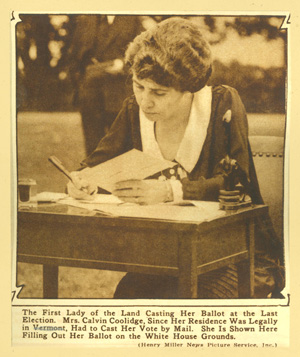
A series of public presentations and discussions about voting in America
Events
On this 100th anniversary of the year U.S. women gained the right to vote, Forbes Library is presenting a series of scholar-led public discussions about voting in America.
Forbes Library received support for the event series through “The Vote: A Statewide Conversation About Voting Rights,” a special initiative of Mass Humanities that includes organizations around the state.
The Right to Vote: Past, Present, Future is a series of four events, each starting with a presentation by a panel of speakers, followed by open group discussion. All events are free and open to the public.
About “The Vote” – Mass Humanities
“The Vote” commemorates the centennial of the 19th Amendment through grants to 17 Massachusetts organizations. Through public events, workshops for educators, museum exhibitions and new research, “The Vote” provides Massachusetts residents with free opportunities to consider issues including women’s suffrage, the Civil Rights movement, voter suppression, civics education, and teen voting.
The 19th Amendment to the U.S. Constitution declared that the right to vote could not be denied on the basis of a person’s sex. Ratified in 1920, it marked a major victory in the women’s movement by extending the vote to women. But with racism and xenophobia on the rise in the late nineteenth and early twentieth centuries, many women of color, like their menfolk, still could not vote. Poll taxes and literacy tests effectively barred many African Americans from voting, especially in the South, and Native Americans in 1920 could gain the right to vote only by severing their ties to their tribes. Many states had passed laws making it illegal for noncitizens to vote, and Chinese Americans were barred from citizenship. Clearly the ratification of the 19th Amendment represents a complicated moment in our nation’s history, one that warrants thoughtful reflection on how to commemorate it.
The year 2020 arrives at another pivotal period in our nation’s electoral history. Some states are considering extending the franchise to felons and younger teens, while others have increased the hurdles to voting. As voting rights, voter fraud, and electoral security are being debated across the country, the humanities offer essential resources for deepening our understanding of this moment.
